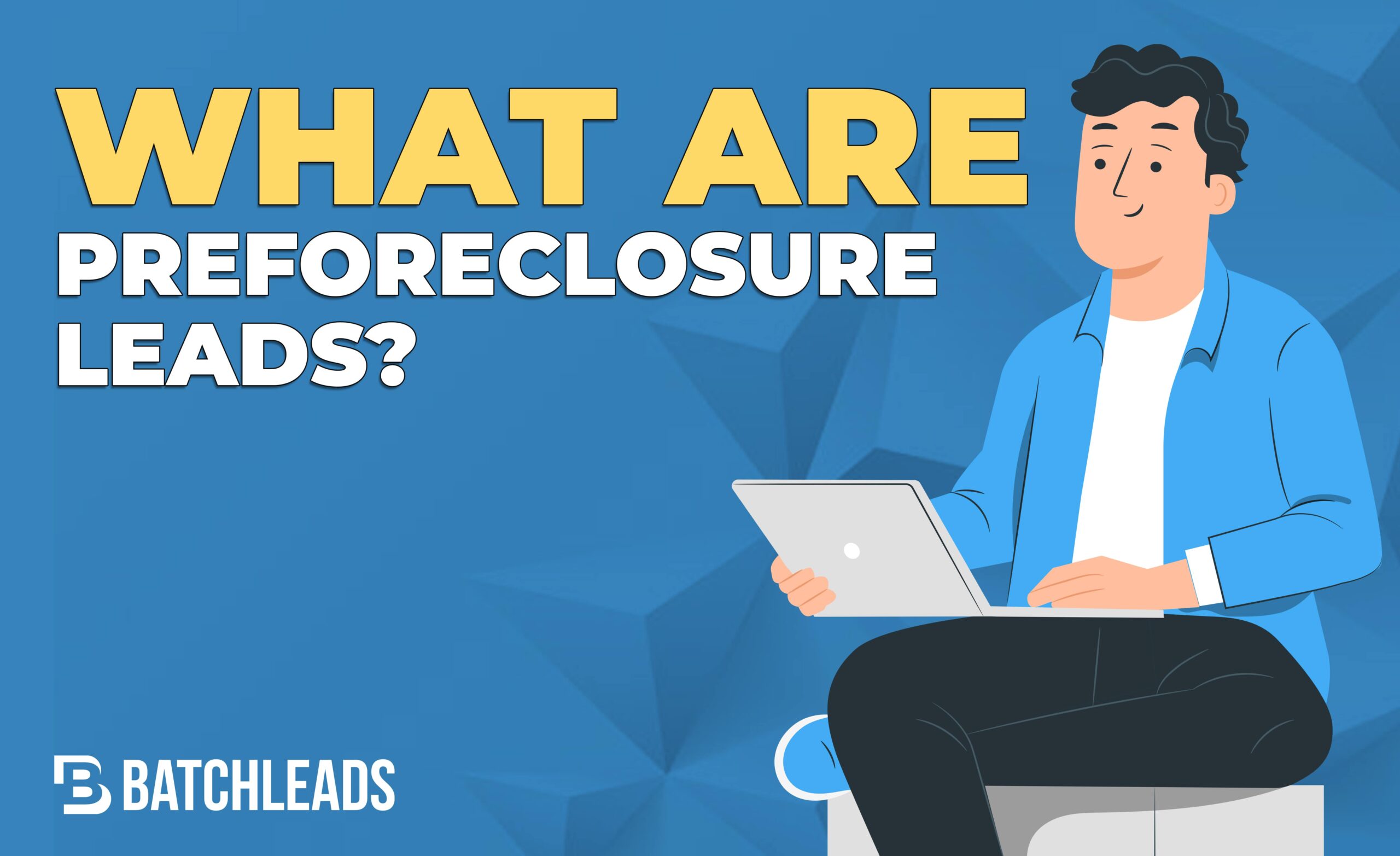Real estate investors are always looking for motivated sellers so they can buy investment property at the lowest price. While there are many different distress factors that affect homeowners, going into preforeclosure is the one most likely to force an owner to sell.
Preforeclosure is the first phase of the foreclosure process. It begins when a borrower falls behind on mortgage payments and defaults on their mortgage. At this point, the lending institution will issue a notice of default, and unless the borrower catches up on payments, the lending institution will repossess the house.
Owners in preforeclosure are considered distressed homeowners or motivated sellers because they are in a bad financial situation. Sometimes they are trying to catch up on their payments, but often they are willing to sell at whatever price will pay off the remaining balance of their mortgage so they can avoid damaging their credit.
How do you find preforeclosure listings?
There are multiple ways to find these leads. Preforeclosure lists are public records, so almost every county clerk’s office keeps a list of properties in the foreclosure process. You can request this list for a small fee, but if you’re working in multiple counties, this can become time-consuming.
Another way to find preforeclosure homes is to use a property intelligence platform. BatchLeads has a preforeclosure quick filter so you can quickly and easily find these properties and add them to your lead lists.
You can also reach out to real estate attorneys who specialize in foreclosures. These attorneys may be willing to give you contact information, including phone numbers and email addresses, for clients who are looking to sell to save their credit.
Finally, you can browse preforeclosure listings through a real estate agent or local news outlets to find houses worth buying. These are both great options because you can get insights into the properties before you ever see them in person. Reaching out to a listing agent or finding local property and asking around for more information on them can give you personalized insights you won’t get anywhere else.
Qualifying leads
Once you build a list of preforeclosure leads, you need to qualify them before reaching out to the owner. Depending on your investing strategy, some properties may not be a great option for you.
In order to qualify leads, you should do the following:
Calculate the ARV
An investing risk unique to preforeclosures is that the mortgage balance may be higher than the after repair value of the home. This is most common during a severe economic downturn when property owners are upside down, but it can happen in a good economy when the house has suffered severe damage, neglect, or needs significant updates. You should always calculate the ARV of a property before buying it, but it’s especially important when buying a home in preforeclosure.
Determine the equit
Homeowners who are ready to sell are generally looking to pay off their mortgage. That means they will usually accept an offer that matches their remaining loan balance. While you can make a large profit from this, you can also trap yourself in a bad deal if you don’t research the owner’s equity. If you buy from a homeowner who has paid less than 20% of their mortgage, you won’t have much room for renovations, financing costs, etc. unless you manage to inflate the price of the home significantly when you flip it.
However, if you buy from someone who has paid off 60-80% of their mortgage, you will have much more room to work with.
Never forget the 70% rule, especially when buying preforeclosure homes. Sometimes you can get away with breaking this rule, but you should carefully consider it every time you make a real estate purchase.
Consider the location
Finally, you should consider which neighborhood, city, and county your deal is in. Ask yourself if something happening nearby has forced other properties into foreclosure. You may have to dig and ask around, but knowing the area you’re looking to invest in is essential to making an informed investment.



